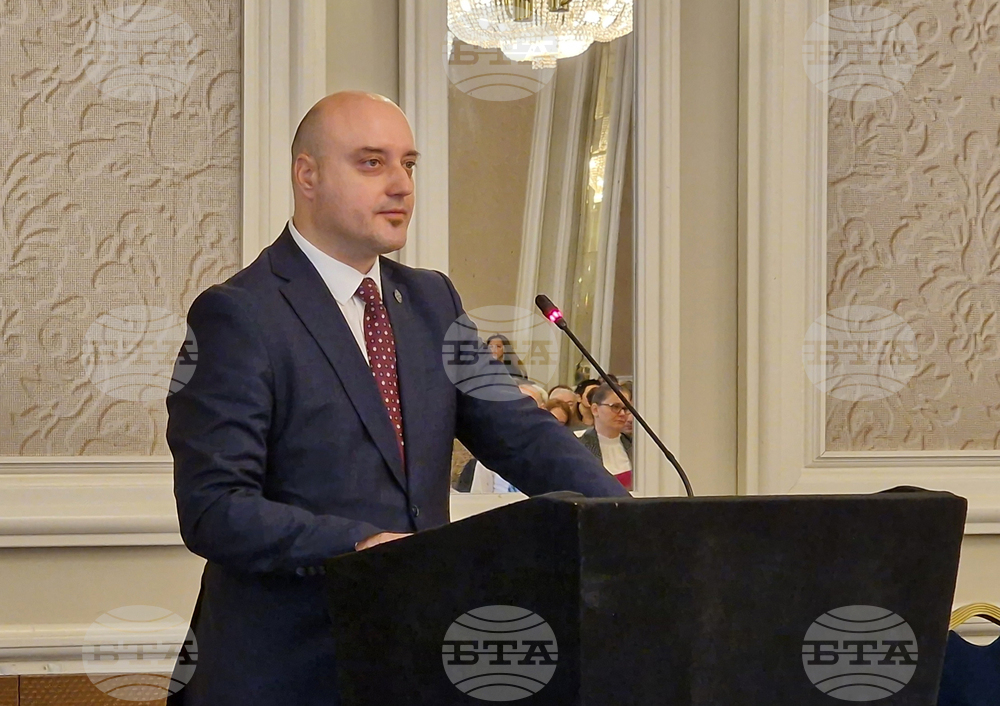site.btaUPDATED Top Justices, Officials Highlight Role of ECtHR, CJEU Judgments in Advancing Rule of Law, Modernization of Bulgarian Legislation


Top Bulgarian justices and government officials highlighted the role of judgments by the European Court of Human Rights (ECtHR) and the Court of Justice of the European Union (CJEU) in advancing the rule of law in Bulgaria and modernizing the Bulgarian legislation. They agreed that Bulgaria does not always keep up with the judgments and practices of the two courts. They were speaking at a conference on the binding nature of the ECtHR and CJEU judgments for the national courts, taking place in Sofia.
The conference is held under the auspices of the President of the Bulgarian Constitutional Court, Justice Pavlina Panova, and is organized by the Krastyo Tsonchev Centre for Attorney Training with support from the Embassy of the Netherlands in Bulgaria. Attending are Supreme Cassation Court President Galina Zaharova, Ombudsman Diana Kovacheva, the head of the Supreme Bar Council, Ivaylo Dermendjiev, Jurrien Van Der Horst, Dutch Deputy Head of Mission in Sofia, representatives of the Supreme Judicial Council and lawyers.
Following is a soundbite.
Justice Minister Slavov: Bulgaria fails to always conform with the ECtHR and the CJEU practice. The judgments of the two courts are essential in maintaining order and advancing the rule of law in Bulgaria. The standards that they set for the rule of law and human rights, help the national legal systems to adjust in this changing international and European legal order.
Supreme Cassation Court President Zaharova: The substantive issues raised by the judgments of the CJEU and the ECHR should also be reflected at the legislative level, because they are an extremely powerful tool for the modernization of our legislative framework. There are cases in which the State does not take measures in relation to the decisions of the two courts, and national judges hesitate to apply the said decisions in full and in their entirety. This slows down the development of the administration of justice and creates obstacles to the achievement of European legislation.
Jurrien Van Der Horst: The implementation of the decisions by the ECtHR is paramount for the protection and promotion of human rights. By implementing the ECtHR decisions, governments and national courts demonstrate their commitment to respecting human rights and the rule of law, as well as fostering a culture of accountability and responsibility. In a broader context also strengthens the legitimacy, authority and credibility of the European human rights system and reaffirms the belief that justice is not just an ideal but a tangible reality that can be achieved through collective efforts and adherence to the national standards. When the national level complies with the judgments of the ECtHR, it reinforces the credibility of this court and it inspires confidence in the effectiveness of the European Convention on Human Rights. In that sense, the implementation of the ECtHR decisions is an important step in building trust between States and their citizens. It sends a powerful message that human rights violations will not be tolerated. This, in turn, forges a culture of respect for human dignity, laying the foundations for inclusive and harmonious societies. The implementation of decisions of the ECtHR is not just a legal obligation. It is a moral imperative and a testament to our collective commitment to justice and human rights. The Embassy of the Netherlands strongly supports this wonderful initiative, which aims to create a better understanding of the significance of ECtHR decisions and their practical application at the national level.
Bulgarian Constitutional Court President Pavlina Panova: Justice always goes beyond the confines of a particular case and never concerns only the parties to this case. Behind the concrete aspects of the actions of the ECtHR and CJEU judgments is the desire to build and maintain a common order on a shared field of justice. The judgments of the two courts have binding force, they set the standards, but the primary responsibility remains with the national courts. Belonging to order and being part of the European community means cultivating a culture of rule of law, democracy, human rights and being aware that they are not a given but are a civilizational choice.
Supreme Bar Council President Ivaylo Dermendjiev: The ECtHR decisions are binding for all member states but they are not enforced everywhere the way they should be. This conference is very important against the backdrop of the discussions on issues of significance for Bulgaria and for the EU acquis and its implementation.
/KK/
Additional
news.modal.image.header
news.modal.image.text
news.modal.download.header
news.modal.download.text
news.modal.header
news.modal.text





